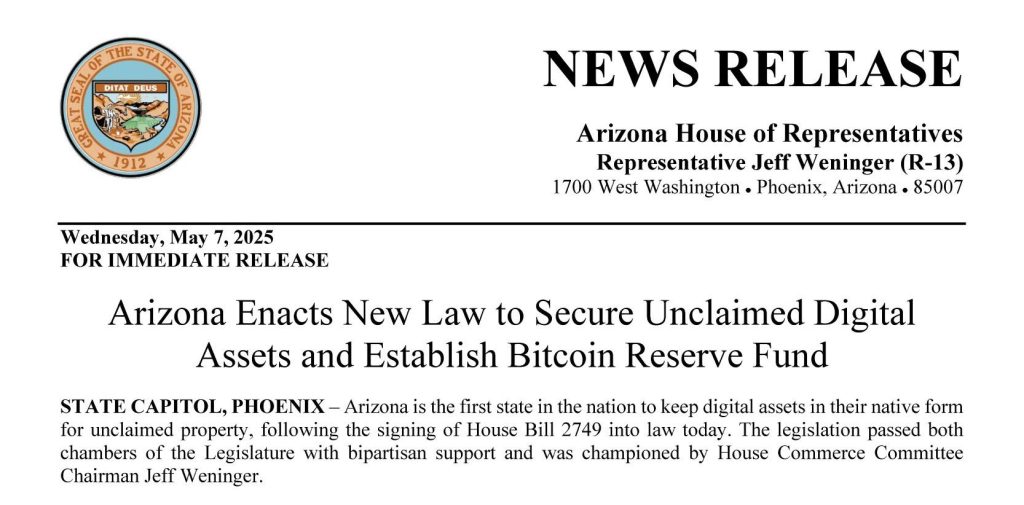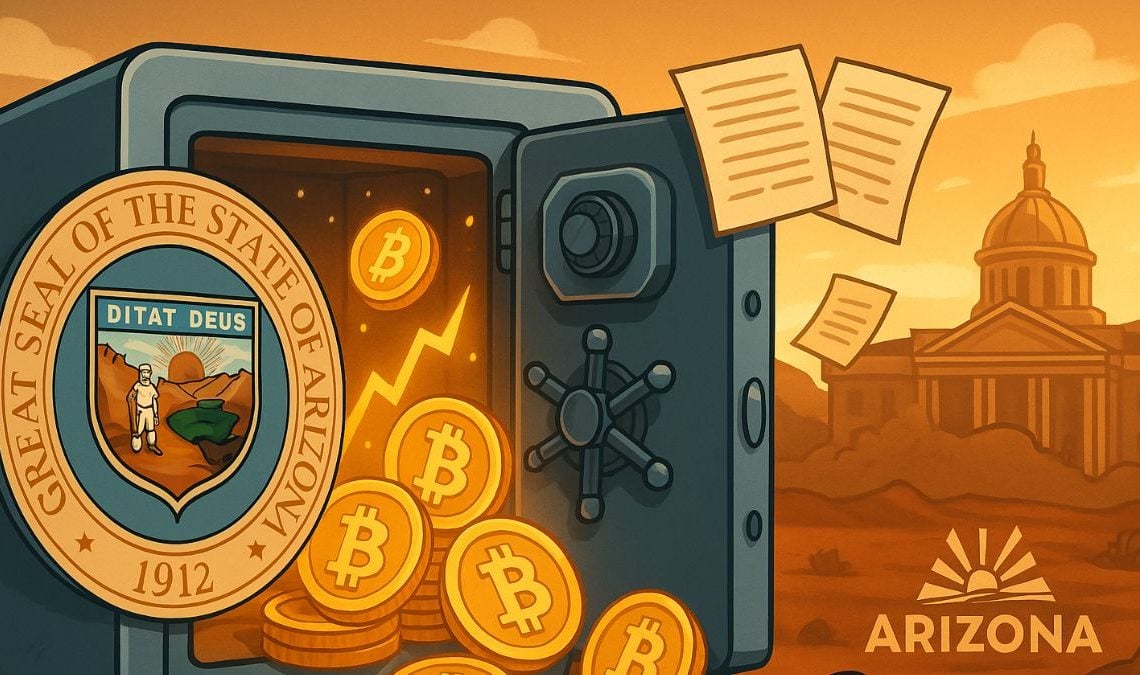On May 7, 2025, the state of Arizona made history by officially signing House Bill 2749 into law—a legislative move that positions the state at the forefront of digital asset adoption in the U.S. The law enables Arizona to claim unclaimed crypto assets and allocate them to a Bitcoin and Digital Assets Reserve Fund, setting a powerful precedent for other U.S. states.
Table of Contents
ToggleA Landmark in U.S. Crypto Policy
The bill, championed by Representative Jeff Weninger and passed with bipartisan support, updates Arizona’s handling of unclaimed property to include digital assets such as Bitcoin and other cryptocurrencies. According to the official press release, digital assets will be presumed abandoned if the rightful owner fails to respond to communications for a period of three years.

Once deemed abandoned, these assets must be transferred to the Department of Revenue in their native form. The law also authorizes state custodians to stake the assets, allowing Arizona to earn staking rewards or receive airdrops, creating new financial opportunities without increasing taxes.
As Chairman Weninger stated:
“Digital assets aren’t the future—they’re the present. This law ensures Arizona doesn’t leave value sitting on the table and puts us in a position to lead the country.”
A Strategic Shift After a Previous Veto
What makes this law even more noteworthy is that it follows a previous veto by Governor Katie Hobbs. Just last year, Hobbs had blocked Senate Bill 1025, a similar proposal to invest seized public funds into Bitcoin, citing risks associated with “untested assets.”
This time, however, the law focuses strictly on unclaimed digital property rather than state-allocated funds, making the framework more acceptable from a fiscal policy standpoint. The newly created Bitcoin Reserve Fund will be managed by the State Treasurer and is subject to legislative appropriation.
This legislation is the first of its kind in the U.S., and may serve as a model for other states looking to integrate crypto into public financial management.
Arizona Isn’t Alone in the Crypto Policy Race
Interestingly, Texas may not be far behind. On the very same day Arizona’s bill was signed, a Texas House Committee passed a Republican-backed proposal to create its own Bitcoin Reserve, setting the stage for a full floor vote before heading to Governor Greg Abbott.
This signals a potential wave of state-level crypto reserves, each using different mechanisms to accumulate and manage digital assets for long-term strategic use.
What This Means for Bitcoin Adoption
Beyond Arizona’s borders, this law is a major signal of growing governmental interest in crypto asset management. Unlike federal-level debates, which often stall on regulation, Arizona is showing that state governments can move fast, experiment, and lead in blockchain policy.
The implications are huge:
- Creates legal clarity for handling unclaimed digital assets.
- Normalizes staking and yield strategies at the state level.
- Encourages other jurisdictions to view Bitcoin as a viable reserve instrument.
It’s not just a legal win—it’s a narrative win for Bitcoin.
Final Thoughts: Arizona Sends a Message
Arizona’s move isn’t just about safeguarding unclaimed digital property—it’s about setting the tone for how U.S. states engage with the evolving crypto economy. The fact that this law passed in a bipartisan manner, after a previously failed attempt, shows how much the conversation has shifted.
If Arizona proves that managing a Bitcoin reserve can be both secure and profitable, expect other states to follow suit—especially those already eyeing crypto as a strategic asset class.
As Weninger noted in the bill’s official summary:
“It’s exactly the kind of policy we should be leading on—modern, precise, and built with an understanding of where technology and finance are heading.”










